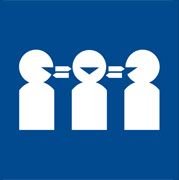Australia has a range of mental health services to meet the needs of multicultural communities. You can use our list to help find out more about relevant national and local providers.
NEED HELP NOW?
If your life is in danger CALL 000
Your first point of contact when experiencing poor mental health should always be your General Practitioner. They will be able to discuss your individual needs and circumstances and help you come up with some next steps.
If you need help finding a General Practitioner, talk to people in your community or a service you can trust to find some suggestions in your area.
If you live in Australia and are in an immediate crisis, please call one of the following numbers:
The Embrace Project does not provide crisis services. If you need help now please call one of the phone numbers below which are available for support 24 hours a day, 7 days a week:
Emergency services – 000
Lifeline – 13 11 14
Beyond Blue – 1300 22 4636
Suicide Call Back Service – 1300 659 467
Kids Helpline – 1800 55 1800
MensLine - 1300 789 978
Need a Interpreter?

If you need an interpreter to help speak with any of the above services, please call the Translating and Interpreting Service (TIS National) on 131 450. Access the website for more information here https://www.tisnational.gov.au/
Looking for more information about services in your area?
You can use the Lifeline Service Finder to find local services.
Live outside Australia?
If you live outside Australia, please contact a local helpline or emergency service.
We have provided a list of relevant national, state and territory mental health providers below.
- National Mental Health Commission
- Forum of Australian Services for Survivors of Torture and Trauma (FASSTT). FASSTT is a national coalition of organisations that respond to the needs of survivors of torture and trauma who have come to Australia from overseas. There is an agency in each state and territory of Australia, see below for more information.
- Head to Health
- Carers Australia
- FriendLine - FriendLine is a free, anonymous phone service for anyone in Australia who feels lonely, isolated or just in need of a chat. Volunteers are available for a friendly conversation 7 days a week. Note: We are not a crisis service.
- Witness to War - A national multilingual telephone hotline for people affected by overseas conflict. Call Witness to War on (free call) 1800 845 198.
- Department of Social Services (DSS)
DSS helps to support Australians' mental health and wellbeing through a range of programs & services. - Carer Gateway
Carer Gateway is a national online and phone service that provides practical information and resources to support carers. The interactive service finder helps carers connect to local support services. - Family Mental Health Support Services
Aims to provide support to families, children and young people affected by mental illness through a diverse range of services targeting prevention and early intervention
- Mental Health Commission of New South Wales
- Transcultural Mental Health Centre (TMHC). A state-wide service that promotes access to mental health services for people of culturally and linguistically diverse (CALD) backgrounds, provides clinical consultation and assessment, mental health promotion, develops resources and provides education and training.
- Service for the Treatment and Rehabilitation of Torture and Trauma Survivors, STARTTS
- NSW Government: Mental Health
- Northern Territory Government: Mental Health
- Multicultural Council of the Northern Territory (MCNT). Provides information and advice about multicultural issues.
- Queensland Government: Mental Health
- Queensland Transcultural Mental Health Centre (QTMHC)The Queensland Transcultural Mental Health Centre (QTMHC) is a state-wide service which provides an information, referral, resource and clinical consultation service.
- Queensland Program of Assistance to Survivors of Torture and Trauma (QPASTT)
- SA Government: Mental Health Services
- Survivors of Torture and Trauma Assistance and Rehabilitation Service, STTARS
- Relationships Australia: South Australia
- Tasmanian Government: Mental Health
- Phoenix Centre A program within the Migrant Resource Centre offering specialist services for survivors of torture and trauma.
- Victorian Government: Mental Health
- Victorian Transcultural Mental Health (VTMH)
- Foundation House - The Victorian Foundation for Survivors of Torture Inc.
- Action on Disability in Ethnic Communities (ADEC)
- Centre for Culture Ethnicity and Health (CEH)
